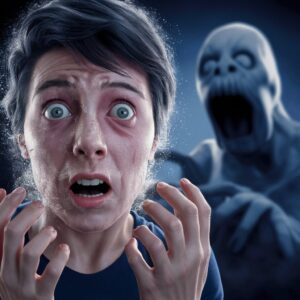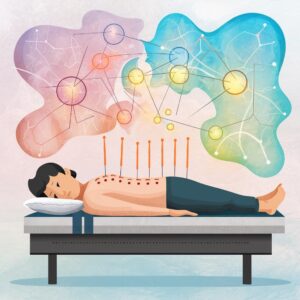Acupuncture: A Powerful Therapy for Phobias
Phobias represent a specific category of anxiety disorders characterised by an intense and irrational fear of particular objects, situations, or activities. Common examples of phobias include acrophobia, which is the fear of heights; arachnophobia, the fear of spiders; aviophobia, the fear of flying; and glossophobia, the fear of public speaking. These concerns can significantly impact everyday life and lead to considerable distress.
When confronted with the source of their phobia, individuals may display physiological reactions, including increased heart rate, difficulty breathing, trembling, and a strong urge to escape. Phobias can develop at any point in life and may be triggered by traumatic experiences, learnt behaviours from family members, or inherited tendencies. While fear is a common response to unavoidable situations, phobias are marked by an exaggerated and persistent fear reaction that far exceeds the actual threat posed by the object or situation causing the fear.
Avoidance behaviours can greatly affect a person's overall well-being. Recognising that with the appropriate support and strategies, one can successfully navigate these challenges and continue to achieve personal and professional growth is essential.
Main Pointers
- Phobias represent profound and irrational fears that can greatly affect an individual's everyday life and overall well-being.
- Conventional approaches to addressing phobias, including exposure therapy and medication, often come with certain limitations and potential side effects.
- Acupuncture effectively addresses phobias by harmonising the body's energy and targeting the underlying causes of fear.
- Acupuncture for phobias is grounded in the science of stimulating targeted points in the body, which helps to regulate the nervous system and alleviate anxiety.
- Research has demonstrated the effectiveness of acupuncture therapy in addressing phobias and enhancing overall mental well-being.
 The Limitations of Traditional Treatments for Phobias
The Limitations of Traditional Treatments for Phobias
Psychotherapy: The Most Widely Used Method
Cognitive-behavioural therapy (CBT) stands out as the most prevalent approach in psychotherapy for addressing phobias. This method entails recognising and confronting illogical thoughts and beliefs regarding the feared object or situation while progressively introducing the individual to the source of their fear within a structured and secure setting.
Constraints of Conventional Therapies
Although CBT proves beneficial for numerous individuals dealing with phobias, it may not be universally effective, and some may struggle to face their fears through this approach. Medications, including anti-anxiety medications or beta-blockers, can be prescribed to assist in managing the symptoms associated with phobias. While these medications may offer temporary relief from anxiety symptoms, they do not tackle the root cause of the phobia. Additionally, there may be side effects or a risk of dependency.
Exploring Different Options
Certain individuals might not react positively to medication or may choose to avoid dependence on pharmaceutical solutions. Consequently, conventional approaches to treating phobias exhibit limitations regarding their effectiveness across different individuals, potential side effects, and the necessity for continuous therapy or medication oversight. This has resulted in an increasing curiosity about alternative methods for addressing phobias.
How Acupuncture Works to Treat Phobias
Acupuncture, a time-honoured Chinese therapy, seeks to restore balance and enhance the flow of qi. According to traditional Chinese medicine, phobias arise from imbalances in the body's qi or energy. Acupuncture targets specific points associated with the neurological system, emotions, and stress responses to restore balance and relieve the symptoms of phobias. This presents a compelling solution for those seeking relief.
Research suggests that acupuncture may affect the neurotransmitters that play a role in regulating anxiety and mood, including serotonin and dopamine. By activating these neurotransmitters, acupuncture has the potential to reduce fear and anxiety associated with phobias. Additionally, acupuncture is believed to have a soothing effect on the nervous system, promoting relaxation and reducing the body's stress response, which leads to a feeling of calm and tranquillity in the individual.
Acupuncture encompasses more than just physiological effects; it represents a holistic approach to addressing phobias. Addressing phobias' cognitive and emotional dimensions significantly improves individuals' well-being and fosters a sense of relaxation. Acupuncture addresses the mind and body as a cohesive whole by minimising reactivity to concerns and promoting a state of grounding in alignment with the principles of traditional Chinese medicine.
 The Science Behind Acupuncture for Phobias
The Science Behind Acupuncture for Phobias
While the exact mechanisms of acupuncture remain a subject of ongoing research, a growing body of evidence indicates its effectiveness in addressing anxiety disorders, such as phobias. The amygdala is a region of the brain responsible for processing negative emotions such as fear and anxiety. Research suggests that acupuncture might influence its activity. Acupuncture has the potential to reduce the increased fear response observed in individuals with phobias by influencing the activity of the amygdala.
Furthermore, studies indicate that acupuncture can influence the release of neurotransmitters that regulate anxiety and mood, such as serotonin and gamma-aminobutyric acid (GABA). Acupuncture can assist in alleviating anxiety by promoting the release of beneficial neurotransmitters. Research utilising functional magnetic resonance imaging (fMRI) indicates that acupuncture can potentially modify the activity of brain regions associated with emotional processing and stress response.
The findings provide empirical support for the use of acupuncture as a therapeutic approach for phobias and various anxiety disorders. In conclusion, while additional research is necessary to understand the mechanisms of acupuncture in relation to phobias fully, existing evidence suggests that acupuncture can positively impact the physiological and psychological factors associated with these conditions.
Case Studies: Success Stories of Acupuncture Therapy for Phobias
Acupuncture is effective in addressing phobias, supported by numerous case studies and personal accounts. An illustrative case involved a woman who suffered from a severe fear of flying, preventing her from using air travel for twenty years. After several acupuncture sessions focused on anxiety and stress relief, she reported a significant decrease in anxiety and an enhanced feeling of relaxation regarding the idea of flying.
Following a series of acupuncture sessions, she successfully boarded a plane without experiencing significant anxiety. A distinct case study explored an individual grappling with a debilitating phobia of public speaking, which has hindered his career progression. Through regular acupuncture sessions focused on promoting relaxation and reducing performance anxiety, he successfully overcame his fear and delivered an impressive presentation at work.
Following acupuncture therapy, he experienced a boost in confidence and improved emotional regulation during public speaking engagements. These success stories illustrate the effectiveness of acupuncture in addressing phobias. While results can vary from person to person, acupuncture therapy has proven to be an effective solution for alleviating numerous individual concerns.
Finding an Acupuncturist for Phobias: What to Look For
Preliminary Assessment and Therapeutic Strategy
In your initial consultation, discuss your specific phobia and treatment objectives with the acupuncturist to confirm their experience in handling similar issues. Enquire about their methodology for addressing phobias and the effectiveness they have demonstrated with past clients. An experienced acupuncturist will invest the time to comprehend your specific needs and create a customised treatment plan to address your distinct symptoms and concerns.
Establishing Trust and Connection
Feeling comfortable and at ease with your acupuncturist is crucial, as trust and rapport play key roles in the therapeutic relationship. It may be beneficial to arrange a short meeting or phone call before committing to treatment, allowing you to assess your confidence in their skills and methodology.
A Tailored Treatment Strategy
An experienced acupuncturist will collaborate with you to create a tailored treatment plan that targets your unique phobia and concerns. This plan will be customised to address your specific symptoms and requirements, guaranteeing you receive the most effective treatment.
 Integrating Acupuncture with Other Therapies for Phobias
Integrating Acupuncture with Other Therapies for Phobias
Acupuncture can serve as an effective standalone treatment for phobias, and it can also be integrated with other therapies to enhance its benefits. An example of this is the combination of acupuncture and cognitive-behavioural therapy (CBT), providing a holistic approach to tackle both the physical and mental aspects of phobias. Acupuncture has the potential to reduce anxiety symptoms and promote relaxation, thereby enhancing individuals' engagement in exposure therapy as part of cognitive-behavioural therapy (CBT).
Moreover, incorporating mindfulness practices like meditation or yoga alongside acupuncture significantly improves emotional regulation and reduces stress levels. These complementary therapies can synergistically enhance overall well-being and resilience in the management of phobias. Moreover, incorporating lifestyle modifications like regular exercise, healthy eating patterns, and adequate sleep can improve overall mental health and may amplify the effects of acupuncture therapy.
By embracing a holistic strategy for phobia management, individuals can successfully tackle various facets of their well-being and enhance their overall treatment outcomes. In summary, phobias represent a common form of anxiety disorder that can greatly impact a person's overall well-being. While traditional treatments for phobias may have limitations regarding their effectiveness and possible side effects, acupuncture offers a holistic approach that addresses both the physical and mental aspects of these conditions.
Acupuncture has shown promise as an effective treatment for phobias by influencing neurotransmitter levels, adjusting brain function, and promoting relaxation. To effectively tackle anxiety disorders, individuals should seek out a skilled acupuncturist who specialises in treating these conditions. Furthermore, they should consider incorporating various therapeutic methods to improve their likelihood of overcoming their anxieties and reclaiming control over their lives.
FAQs
What is acupuncture therapy?
Acupuncture therapy is a practice rooted in traditional Chinese medicine. In it, thin needles are strategically inserted into designated points on the body to enhance energy flow and facilitate healing.
What are phobias?
Phobias represent profound and irrational fears directed towards particular objects or situations. Common phobias encompass a range of fears, such as heights, spiders, flying, and public speaking.
How can acupuncture therapy help with phobias?
Acupuncture therapy offers a pathway to alleviate phobias through its ability to enhance relaxation, diminish anxiety, and restore equilibrium to the body's energy flow. It can also assist in addressing underlying imbalances that may contribute to the phobia.
Is acupuncture therapy for phobias effective?
Although research on acupuncture therapy for phobias is limited, certain studies have indicated encouraging outcomes in alleviating anxiety and fear-related symptoms. Further investigation is required to comprehensively assess its efficacy in addressing phobias.
Are there any risks or side effects associated with acupuncture therapy for phobias?
Acupuncture is considered safe when administered by a qualified and licensed professional. Nonetheless, certain individuals might encounter mild side effects, including soreness, bruising, or bleeding at the sites where the needle was inserted. Seeking treatment from a qualified practitioner is essential to effectively reduce risks.
Brought To You By:
References:
- Arachnophobia (Fear of Spiders): Overview & Treatment. https://my.clevelandclinic.org/health/diseases/21852-arachnophobia-fear-of-spiders?
- Beyond Digestion: How Probiotics Can Improve Mental Health and Mood – ProbioticsEverything. https://probioticseverything.com/beyond-digestion-how-probiotics-can-improve-mental-health-and-mood/
The Article: Acupuncture: A Dynamic Approach to Overcoming Fears appeared first on https://mcrtherapies.co.uk
The Article Acupuncture: A Fresh Method for Conquering Anxieties appeared first on https://mcrtherapies.com
The Article Acupuncture: A Fresh Method for Conquering Anxieties Was Found On https://limitsofstrategy.com


Oh, where do I even begin? Reading about phobias and their antics reminds me of my own ongoing battle with what I can only describe as ‘public speaking on a rollercoaster while being chased by a giant spider’ fear—one of those perfect storms of phobic trepidation that I’m convinced is a real phenomenon. You’d think after years of therapy and a few valiant attempts at giving speeches, I’d be strutting my stuff at the local Toastmasters, but instead, I’m still figuring out if it’s a good idea to order a coffee before an engagement or if that’s just an invitation to a shaky hands situation.
It sounds like you’ve got quite a vivid and uniquely challenging phobia there. The way you describe it brings to mind a mix of fear and humor that so many of us can relate to. Public speaking is already a daunting task for so many, and then throwing a rollercoaster and a giant spider into the mix definitely escalates the stakes! It’s fascinating how our minds create these elaborate scenarios, often turning mundane situations into epic tales of survival.
“Discover a world of possibilities and inspiration waiting just for you—click here to embark on a journey that could enrich your life in unexpected ways!”
https://cnisclub.org/quillbot
It sounds like you’ve really captured the essence of what many people experience when it comes to public speaking. That blend of adrenaline and anxiety can feel like a true rollercoaster ride—minus the safety harness. I can’t imagine the added layer of a giant spider chasing you, but it’s interesting how our minds can create these wild scenarios.
You make a great point about the unique mental landscape we navigate when speaking in public. That adrenaline rush can be exhilarating and terrifying at the same time, almost like our brains are wired for a fight-or-flight response, even when the stakes aren’t that high. It’s fascinating how our imagination can amplify our fears, turning a simple presentation into a scene worthy of a horror movie—complete with a giant spider.
You’ve encapsulated that feeling perfectly. The adrenaline rush that comes with public speaking really is a double-edged sword. There’s something primal about it, like we tap into that age-old fight-or-flight mechanism. I remember my first big presentation; my heart was racing, and I imagined worst-case scenarios that were downright absurd. I definitely felt like that giant spider was lurking in the audience.
You bring up such an interesting point about the adrenaline rush and the way it taps into that primal instinct. It’s funny how our minds can take us on those wild rides of imagination just when we’re standing in front of an audience. I remember my first major presentation too—my heart was pounding like it was about to leap out of my chest, and I could feel that familiar crawling sensation of panic creeping in. That’s the thing about public speaking; it’s almost as if our brains revert back to a time when being in front of others meant life or death.
Your description of your phobia paints such a vivid picture—public speaking under those conditions sounds like a scene from a wild movie. It’s interesting how different fears can intertwine, creating a unique cocktail of anxiety that challenges us. I’ve read that many feel the same way about public speaking, with or without rollercoasters or spiders involved.
“It sounds like you’ve got quite the unique fear combo there! If you’re looking for some tips to tackle those phobias, check out this resource that might help you conquer those nerve-wracking situations.”
https://cnisclub.org/quillbot
Your reflection on the intertwining nature of fears really resonates with me. It’s fascinating how our minds can create these complex layers of anxiety around seemingly unrelated scenarios. For me, public speaking has always felt like standing on the edge of a cliff—exhilarating yet terrifying, especially when I think about the stares of the audience and the pressure to perform well.
Your exploration of phobias and their impact on daily life is quite thought-provoking and sheds light on an often misunderstood aspect of mental health. I find it particularly intriguing how you mention the physiological reactions, as they highlight the very real, bodily experiences tied to these irrational fears. It raises questions about how deeply intertwined our psychology is with our physical responses, something that I think could be further delved into—perhaps considering how therapies, like acupuncture, can tap into this mind-body connection.
I really appreciate your thoughts on the link between phobias and physiological reactions. It’s fascinating to consider how our bodies can respond so intensely to fears that might seem irrational when viewed from a logical standpoint. The physical symptoms—like increased heart rate, sweating, or even shaking—really are a testament to how intertwined our mental and physical states can be.
Thank you for your thoughtful insights! If you’re interested in exploring more about the mind-body connection and how therapies like acupuncture can help with phobias and anxiety, check out this valuable resource.
https://cnisclub.org/octopus
Ah, phobias—those little gremlins in the attic of our minds that insist on throwing a party every time we encounter a harmless spider or step onto a plane. I’ve got to say, the idea of using acupuncture as a remedy for these irrational fears is both intriguing and, dare I say, a bit akin to using a feather duster in a storm—might work, but who really knows?
You’ve perfectly captured the essence of phobias—little gremlins throwing wild parties in our minds while we stand outside, bewildered and slightly envious of their unrestrained fun. It’s always a spectacle when our brain chooses to react to a harmless little spider as if it were a formidable beast straight out of a horror flick. I mean, really, some creatures just want to hang with us on our ceilings.
“While a feather duster might be whimsical, exploring acupuncture’s potential to tackle phobias could be a game changer—check it out for yourself!”
https://cnisclub.org/quillbot
You’ve painted a vivid picture of phobias—those unexpected visitors that can really disrupt our lives. Using acupuncture might seem unconventional, and I get that it raises eyebrows. The idea is that by stimulating certain points on the body, it might help to balance out the nervous system and reduce anxiety tied to specific fears.
“Curious about how acupuncture might help tame those mental gremlins? Check this out!”
https://cnisclub.org/octopus
Your exploration of phobias and the potential of acupuncture as a therapeutic modality is both enlightening and thought-provoking. Phobias are indeed complex issues that can deeply affect our day-to-day lives, and I appreciate how you highlighted both the psychological and physiological reactions that accompany them. It’s fascinating to consider the ways in which our bodies respond to fear, often in disproportionate measures to the actual threat.
I appreciate your thoughts on the intricate nature of phobias and the role acupuncture might play in addressing them. It’s intriguing how fear isn’t just a mental experience; it manifests physically, creating a ripple effect that can impact our daily lives.
Thank you for your kind words! If you’re interested in exploring more about how acupuncture can help with phobias and anxiety, check out this insightful resource that delves deeper into its therapeutic benefits.
https://cnisclub.org/octopus